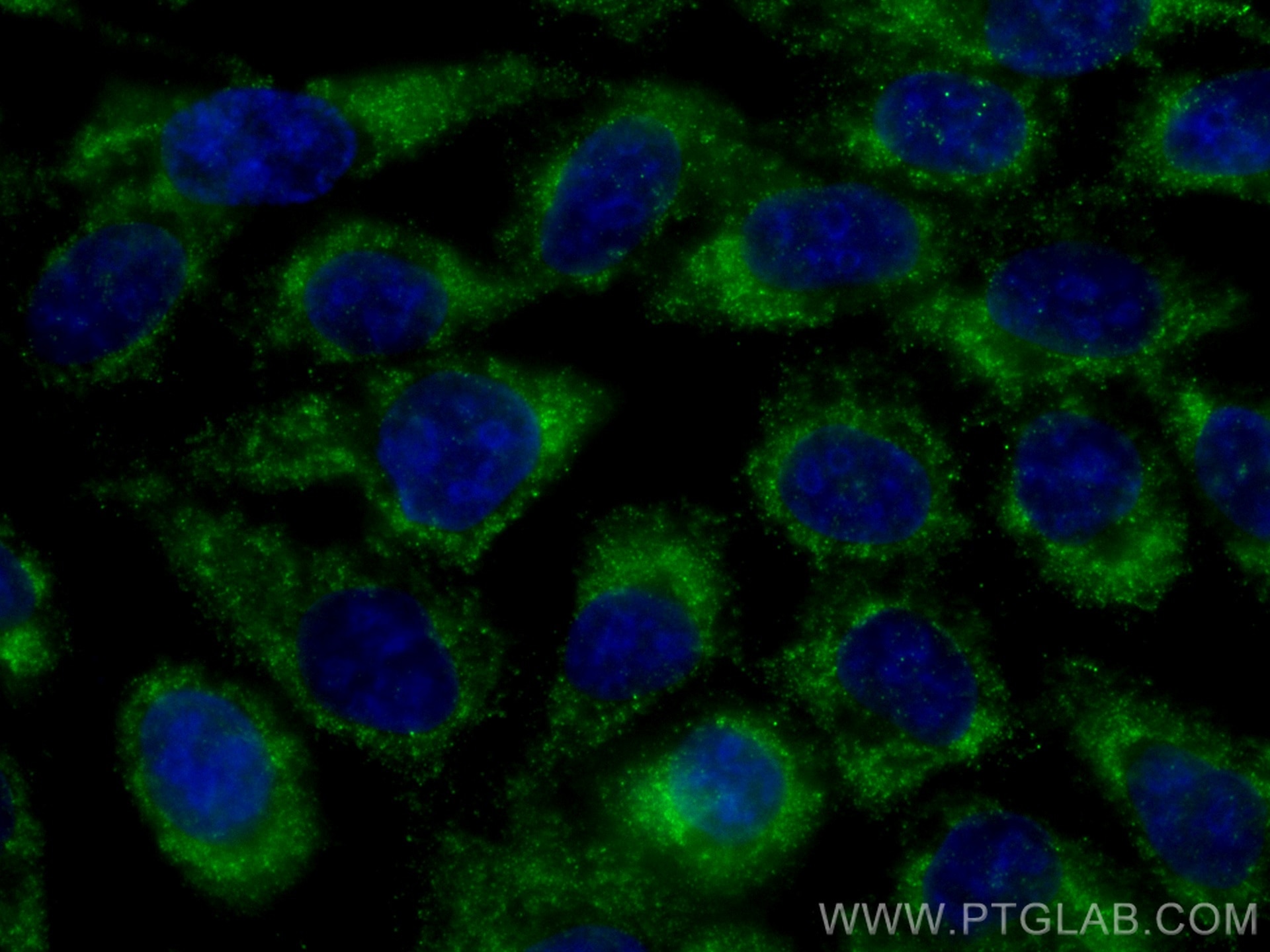GNMT Monoklonaler Antikörper
GNMT Monoklonal Antikörper für IF/ICC
Wirt / Isotyp
Maus / IgG1
Getestete Reaktivität
Hausschwein, human, Maus, Ratte
Anwendung
IF/ICC
Konjugation
CoraLite® Plus 488 Fluorescent Dye
CloneNo.
1B5E3
Kat-Nr. : CL488-67294
Synonyme
Geprüfte Anwendungen
| Erfolgreiche Detektion in IF/ICC | A431-Zellen |
Empfohlene Verdünnung
| Anwendung | Verdünnung |
|---|---|
| Immunfluoreszenz (IF)/ICC | IF/ICC : 1:50-1:500 |
| It is recommended that this reagent should be titrated in each testing system to obtain optimal results. | |
| Sample-dependent, check data in validation data gallery | |
Produktinformation
CL488-67294 bindet in IF/ICC GNMT und zeigt Reaktivität mit Hausschwein, human, Maus, Ratten
| Getestete Reaktivität | Hausschwein, human, Maus, Ratte |
| Wirt / Isotyp | Maus / IgG1 |
| Klonalität | Monoklonal |
| Typ | Antikörper |
| Immunogen | GNMT fusion protein Ag4598 |
| Vollständiger Name | glycine N-methyltransferase |
| Berechnetes Molekulargewicht | 295 aa, 33 kDa |
| Beobachtetes Molekulargewicht | 33 kDa |
| GenBank-Zugangsnummer | BC032627 |
| Gene symbol | GNMT |
| Gene ID (NCBI) | 27232 |
| Konjugation | CoraLite® Plus 488 Fluorescent Dye |
| Excitation/Emission maxima wavelengths | 493 nm / 522 nm |
| Form | Liquid |
| Reinigungsmethode | Protein-G-Reinigung |
| Lagerungspuffer | PBS with 50% glycerol, 0.05% Proclin300, 0.5% BSA |
| Lagerungsbedingungen | Bei -20°C lagern. Vor Licht schützen. Nach dem Versand ein Jahr stabil. Aliquotieren ist bei -20oC Lagerung nicht notwendig. 20ul Größen enthalten 0,1% BSA. |
Hintergrundinformationen
Glycine N-methyltransferase (GNMT, EC 2.1.1.20) was found originally as an enzyme regulating the ratio of SAM to S-adenosyl- homocysteine. GNMT is conservative among different animal species. Glycine-N methyltransferase (GNMT) is a potential tumor suppressor that is commonly inactivated in human hepatoma. GNMT is abundant in liver, but very low in HepG2 cells (PMID: 12566990).
Protokolle
| PRODUKTSPEZIFISCHE PROTOKOLLE | |
|---|---|
| IF protocol for CL Plus 488 GNMT antibody CL488-67294 | Protokoll herunterladen |
| STANDARD-PROTOKOLLE | |
|---|---|
| Klicken Sie hier, um unsere Standardprotokolle anzuzeigen |


